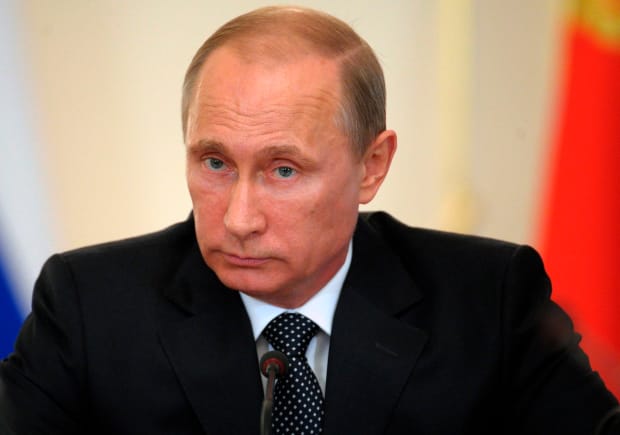Facebook plays a central role in social interactions. The company has never ceased to promote itself as a way to bring people together and make the world a better place. Millions of people around the world use its platforms to exchange, learn, discuss, create and perform a large number of daily tasks.
This essential role of the giant of social networks also earned the company many criticisms. Its opponents and its supporters clash in particular on the policy of moderation of content.
This content has also contributed to making Facebook, renamed Meta Platforms (FB) last October, one of the most controversial companies in the world. However, Mark Zuckerberg's firm has just succeeded in uniting its detractors and supporters against it.
In the midst of the Russian invasion of Ukraine, Facebook has relaxed its rules on calls for violence when those calls target Russian soldiers in Ukraine and Russian President Vladimir Putin.
Concretely, this means that the company's platforms, Facebook and Instagram, have taken the decision not to delete messages hostile to the army and Russian leaders, allowing people in Ukraine to share and spread post about wanting to attack or even kill Russian soldiers.

Calls to Assassinate Putin Allowed
The calls for the murder of the Russian and Belarusian presidents, Vladimir Putin and Alexander Lukashenko, were allowed.
Reuters revealed that it reviewed documents updating Meta's moderation policy in this direction after the invasion of Ukraine by Russia.
Meta Platforms will allow Facebook and Instagram users in some countries to call for violence against Russians and Russian soldiers in the context of the Ukraine invasion.
The calls for those leaders’ deaths will be allowed unless they contain other targets or have two indicators of credibility, such as the location or method, one email said, in a recent change to the company’s rules on violence and incitement.
Nick Clegg, Meta's president of global affairs, defended the relaxation of the moderation policy in a lengthy Twitter post.
"Our policies are focused on protecting people's rights to speech as an expression of self-defense in reaction to a military invasion of their country," Clegg, the public voice and face of Facebook, wrote.
"The fact is, if we applied our standard content policies without any adjustments we would now be removing content from ordinary Ukrainians expressing their resistance and fury at the invading military forces, which would rightly be viewed as unacceptable."
Clegg, however, said that this laxity in the policy of moderation against calls for violence had a limit. Users cannot call for violence against ordinary Russian citizens.
"There is no change at all in our policies on hate speech as far as the Russian people are concerned. We will not tolerate Russophobia or any kind of discrimination, harassment or violence towards Russians on our platform."
He added that the new policy is temporary.
"This is a temporary decision taken in extraordinary and unprecedented circumstances. We will be keeping the situation under review in the period ahead," Clegg said.
The announcement sparked an outcry.
"Nick, wtf you're doing? The @OversightBoard needs to step in," one user commented on Twitter.
The social media giant has admitted in the past to being used to incite violence.
In November 2018, Meta, still Facebook at the time, admitted that in Myanmar it had failed to prevent its platform from being used to "foment division and incite offline violence" in the country.
"The report concludes that, prior to this year, we weren’t doing enough to help prevent our platform from being used to foment division and incite offline violence," Alex Warofka, product policy manager, wrote in a blog post on November 5, 2018.
"We agree that we can and should do more," the executive added.
Russia Blocked Instagram
Apart from Ukraine and Russia, the new policy would also allow users from countries such as Armenia, Azerbaijan, Estonia, Georgia, Hungary, Latvia, Lithuania, Poland, Romania and Slovakia to share calls for violence against Russian soldiers.
Unsurprisingly, Russia reacted by shutting down Instagram in the country, but Russians still have access to WhatsApp, Meta's other platform.
At the same time, the Russian prosecutor's office demanded that Facebook be considered an "extremist" organization. Russian lawmakers made the same request to the country's media and Internet regulator.
The communication war between Meta and Russia started after the company blocked, Russian-state media channels RT and Sputnik from operating on its platforms in Ukraine and the European Union.
It's hard to tell if this blockage is temporary or permanent.
The standoff between Meta and Russia symbolizes in a way the difficulty of multinationals to navigate between their interests and the calls to take a stand on societal issues and conflicts like this.
Meta, which has banned Russian companies and entities from advertising on its platforms, estimates that its anti-Russian decisions will affect its revenues by around 1.5%, which is not much.
Nevertheless, the company has however deemed it useful to clarify its temporary new policy against calls for violence to murder.
"We are now narrowing the focus to make it explicitly clear in the guidance that it is never to be interpreted as condoning violence against Russians in general," Clegg wrote in an internal post on Sunday, insisting that the revised policy only applies in Ukraine, and "only in the context of speech regarding the Russian military invasion of Ukraine," Bloomberg reported.
"We also do not permit calls to assassinate a head of state," Clegg added, without mentioning Putin by name.







